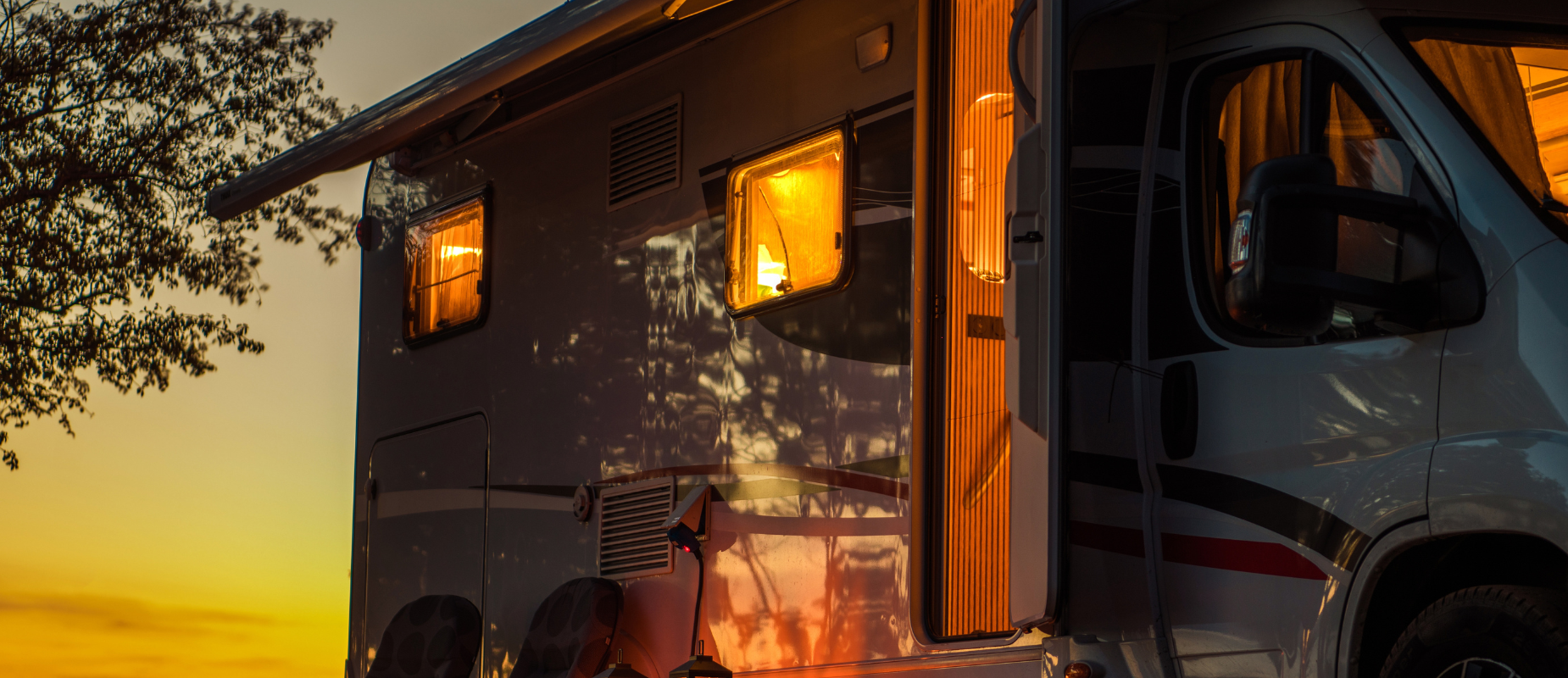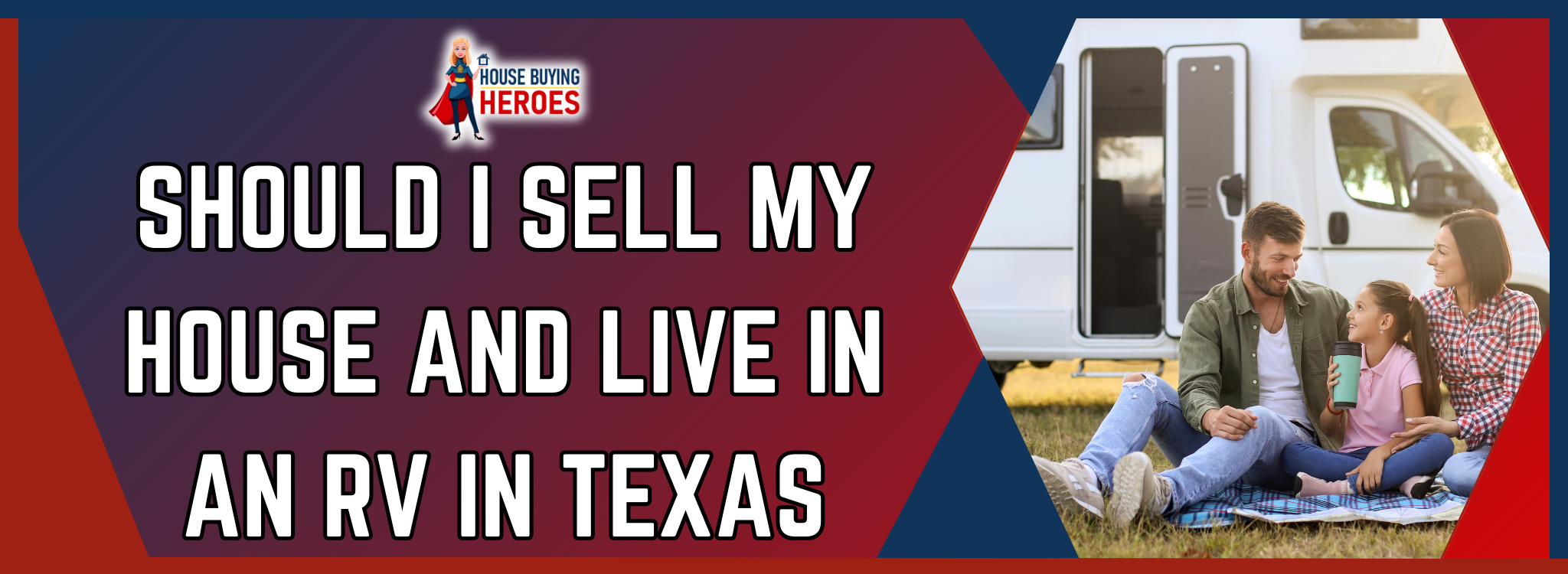
Should I Embrace the RV Living Lifestyle?
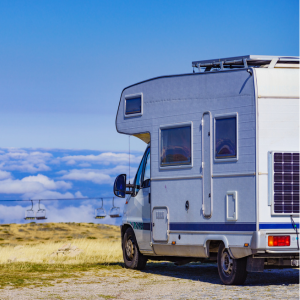
What Are the Financial Benefits of Selling My House?
I’ve been thinking about selling my house and starting RV living. It feels bold, but the financial benefits seem great. You can avoid having a mortgage by selling your house for RV living. Imagine living mortgage-free! The cost savings can be considerable when you compare traditional housing to RV living expenses. Plus, you won’t have the ongoing maintenance costs of owning a home.
How Can Selling My House Reduce Monthly Expenses?
Another thought is how selling the house could cut monthly expenses. Trading property taxes for lower RV costs is a good start. Traditional housing costs for utilities, lawn care, or repairs can increase. With an RV lifestyle, you might face fewer surprise expenses, allowing your budget to relax.
Will Living in an RV Increase My Savings?
Could living in an RV boost my savings? Full-time RVing encourages a minimalist lifestyle, which reduces unnecessary spending. With fewer things to buy and maintain, there’s a real chance to see your savings grow. This way, living in an RV offers both freedom and financial stability.
Does Moving to an RV Allow for More Travel Opportunities?
Travel opportunities are a huge draw. The travel freedom an RV offers is fantastic. No more dreaming about adventures; you can make them happen. Texas has incredible destinations, from Big Bend’s beauty to Austin’s music scene. This adventure lifestyle choice opens doors to exploring at your own pace.
Can I Explore Texas More Freely by Living in an RV?
Living in an RV means exploring the heart of Texas more freely. The RV lifestyle in Texas lets you take road trips and soak in the local culture. Whether you’re enjoying wide-open spaces or city life, the freedom of a mobile home beats traditional housing every day.
How Will I Balance Work and Travel in an RV Lifestyle?
Balancing work and travel while living in an RV is worth considering. Remote work from an RV is possible thanks to modern technology. Internet access is crucial, but with good planning, it’s doable. Joining Texas RV clubs can provide support and advice from fellow travelers who have mastered this balance. So, what are your thoughts? Could this be the lifestyle change I need?
Should I Consider Downsizing My Living Space?

Do you ever feel like your house is overflowing with stuff? I’ve felt that way, too, and it led me to think about downsizing. But how do you know if it’s the right choice for you? Let’s explore this together.
How Do I Decide What to Keep and What to Let Go?
When I first thought about downsizing, getting rid of my things seemed scary. How do you even start? For me, adopting a minimalist mindset helped. It’s about knowing what’s essential. I’d ask myself, “Do I really need this, or am I just keeping it?”
One helpful strategy was to sort items into “keep,” “sell,” or “donate” categories. Every item counts if you’re selling your home and moving into a smaller space like an RV. Storage solutions become crucial. When you plan a house-to-RV transition, keep versatile items, such as a foldable table that doubles as a workspace and dining area.
Is It Possible to Maintain Privacy and Comfort in an RV?
Moving from a traditional house to an RV is a significant change, and you might worry about privacy and comfort. Surprisingly, RV living doesn’t have to mean losing these comforts. With some intelligent customization, you can create a cozy, private space.
A minimalist lifestyle in an RV requires comparing the space you’re used to with what you’ll have. You can maintain privacy with curtains or dividers and comfort by choosing appropriate furniture. There are RV living challenges, such as adjusting to the smaller space, but you can make it feel like home with creativity. Plus, there’s something freeing about taking your home wherever you go!
So, what do you think? Could downsizing be right for you? If you’re considering it or have already made the change, I’d love to hear your thoughts and any tips you might have. Let’s discuss what makes any space feel like home, whether a big house or a snug RV.
What Challenges Might I Face Living in an RV in Texas?
Are There Any Legal Considerations to Know?
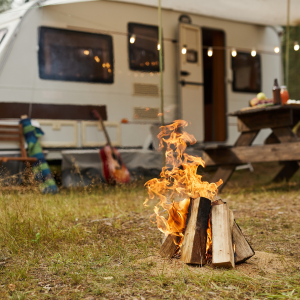
Were you thinking about living full-time in an RV in Texas? That sounds exciting! But you’re probably asking yourself, “What do I need to know legally?” It can be confusing to figure out the rules for long-term stays and legal considerations for RV parks.
Texas has its laws for RV living. Check zoning laws because some areas do not permit permanent RV living. Some places might require you to move your RV every so often. It’s a good idea to look into Texas laws before settling down to avoid surprises.
Before you choose a spot, talk to local authorities or experienced RV travelers who are already there. They can offer helpful insights. Do you have any tips on RV living laws? Sharing them could help others!
How Will the Weather in Texas Impact My RV Life?
Now, let’s talk weather. Texas’s climate can be a challenge for RV living. Summers are hot, and winters can be surprisingly cold, which affects how you live in your RV.
In Texas summers, your RV’s air conditioning will work hard to keep things cool. It’s like being in an oven if you’re not prepared. To stay cool, consider using reflective window covers and sunshades on the roof. Winters, on the other hand, can be chilly. Insulate your RV well and use a space heater to stay warm.
Regular maintenance is crucial here. Check your tires and roof sealant often because the weather can wear them quickly. Adjusting for comfort is key. Have you made any intelligent changes to your RV for the weather? I’d love to hear your ideas!
Living in an RV in Texas comes with its own set of challenges and rewards. If you’re ready, just keep an eye on the road. And if you have any helpful tips, we’d love to hear them to make RV life easier together.
Could Selling My House and Living in an RV Affect My Social Life?

Moving from a regular house to living in an RV is like swapping your sneakers for roller skates. It can be exciting, but you might need help with how it affects your social life. I’ve been thinking about this and, as someone who values staying connected, wondered how to keep in touch with friends and family while traveling.
How Do I Stay Connected with Friends and Family?
You might think a mobile lifestyle makes communication challenging, but technology has made it simple. You can still keep solid social connections with video calls and instant messaging. Whether you’re in Oregon or Florida, staying in touch is easy. Keeping a routine, like weekly video chats or sharing photos, helps. It’s reassuring to know your loved ones are just a tap away, even when you’re far apart.
Even though I love being on the road, checking in with familiar voices is grounding. Remote living doesn’t mean isolation; you can stay engaged with family and friends using communication technology
What Are the Community Engagement Opportunities in an RV Lifestyle?
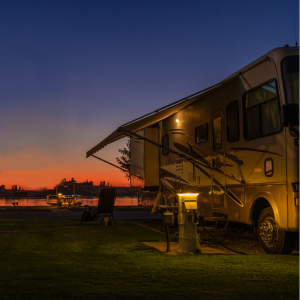
If you’re afraid of feeling lonely on the road, here’s some good news: RV life offers many community engagement opportunities. There are many RV clubs, like Texas RV groups, where you can meet new people who share your love for travel. The travel community is lively, with folks swapping stories and tips around a campfire.
I’ve heard amazing stories about networking at RV parks. Many friendships start over a shared love for this nomadic lifestyle. Just put yourself out there. Whether joining a potluck or attending a local event, social interaction happens more quickly than you might think.
So, if you’re considering selling your house for an RV life and wonder if it will hurt your social life, it doesn’t have to. It might improve it in surprising ways. Have any of you made the switch? I’d love to hear your experiences and advice—it’s nice to know you’re not alone on the road!
Should I Rethink My Career for RV Living?
Rethinking your career can feel overwhelming, especially when considering the exciting life of RV living. Many people dream about traveling and seeing new places. But can you balance a career with a mobile lifestyle? Let’s explore how your work might fit into this way of living.
Can I Work Remotely While Living in an RV?
Living in an RV makes remote work possible, but reliable internet access is vital. Good connectivity is a must-have, and luckily, there are many options. Whether you’re parked in Texas or exploring Colorado, having a reliable plan for staying online is essential.
There are more remote work opportunities than ever, offering flexibility for jobs like writing, design, tech support, and teaching. The gig economy is also growing fast. But being on the road and working does have challenges. Balancing your work with time to enjoy nature is essential.
How Does RV Living Influence My Professional Aspirations?
You might wonder if living in an RV will change your career goals. It could. When you’re constantly moving, typical 9-to-5 jobs may need to be revised. This situation could be an opportunity to evaluate your skills and explore a career that aligns more closely with your professional aspirations.
RV living offers the freedom and flexibility to try different job roles you might not have thought about before. You’re not stuck in one location, so that you can look for opportunities everywhere.
Adjusting your career to a mobile lifestyle takes planning and an open mind. But the rewards can be significant. Imagine waking up in a new place and seeing a different sunrise every morning. These experiences can inspire you both professionally and personally.
So, what do you think? Does combining work with an RV lifestyle interest you? I’d love to hear your thoughts and any tips you might have for those considering this mix of career and adventure.
FAQs:
Can living in an RV save money compared to owning a house?
Living in an RV can save you money each month, especially if you choose affordable places to park. But it’s not always cheaper than a house due to costs like maintenance and campground fees. In Texas, with its many RV parks, it could be a good option to explore this lifestyle.
What are the pros and cons of living in an RV full-time?
Living in an RV gives you the freedom to travel and see new places. You can enjoy nature, live simply, and possibly without a mortgage. However, there are downsides like limited space, maintenance issues, and finding reliable internet. Considering these pros and cons can help you decide if RV life is for you.
Could selling your house and buying an RV improve your lifestyle?
It depends on what you want. If you desire freedom and less clutter, it might be a great change. But think about how it will affect your family or work, especially with kids. In Texas, with wide-open spaces, RV living might offer a more adventurous life.
How do you prepare for moving from a house to an RV?
Start by downsizing and packing only the essentials. Look into storage for things you can’t bring. Research RV parks and communities, especially in Texas. Plan for health insurance and remote work options, and consider any changes needed for your RV for long-term living.
What factors should you consider before selling your home for an RV lifestyle?
Think about your finances, including home equity and savings. Consider your goals and how much you enjoy being mobile. Consider its impact on your social life and time with friends and family. Also, check the real estate market and the resale value of your current home.
What are some essential tips for new full-time RV travelers?
Stay organized and keep your RV in good condition. Learn about off-grid living and power management. Plan your travels, considering weather and road conditions. Make sure you have proper insurance, and join clubs or communities for support.
Is RV living suitable for families?
RV living can be great for families who love adventure and being together. It needs careful planning for comfort and safety. Think about school needs if you have kids, and look for family-friendly RV parks. Texas has many options for family adventures.
How does RV living compare to owning a traditional home?
RV living is different in size, upkeep, and cost. It’s often cheaper, letting you avoid regular bills and mortgages. But you’ll need to adjust to a smaller, mobile lifestyle. Compare these aspects based on what you like and your life goals.
Key Insights
- Have you ever thought about selling your home and living in an RV? We’re thinking of packing up our house in Texas to hit the road and enjoy the outdoors.
- Living in an RV can save money every month, but it might not always be cheaper than a house. There are many things to compare, like maintenance and insurance.
- Moving into an RV offers fun, but we need to consider space and storage for our stuff. How can we stay comfortable?
- Deciding to sell our home involves checking the real estate market and understanding the financial impact of being mortgage-free.
- Living in an RV full-time sounds exciting, but we must also think about internet access for remote work, health insurance, and practical needs.
- Our lifestyle will change a lot, moving from a regular house to a more mobile and simple way of life. What challenges could we face on this path?
- Adventure calls as we think about travel spots and maybe living off-grid. But what about our house and community ties?
- There are options in Texas that provide flexibility and customization for RVers, but moving includes legal and safety issues, especially with family or pets.
- As we plan, we are thinking about the best RV parks, vehicle types, and balancing adventure with daily needs. Do any experienced RVers have tips for us?
These details apply to the entire state of Texas, including cities like Houston, Dallas, Austin, Paris, and Benbrook, as well as their surrounding areas. If you require extra assistance or have particular inquiries, please contact us at (855) 563-4376. Please see our website, House Buying Heroes, for more information and complete descriptions of our services.

